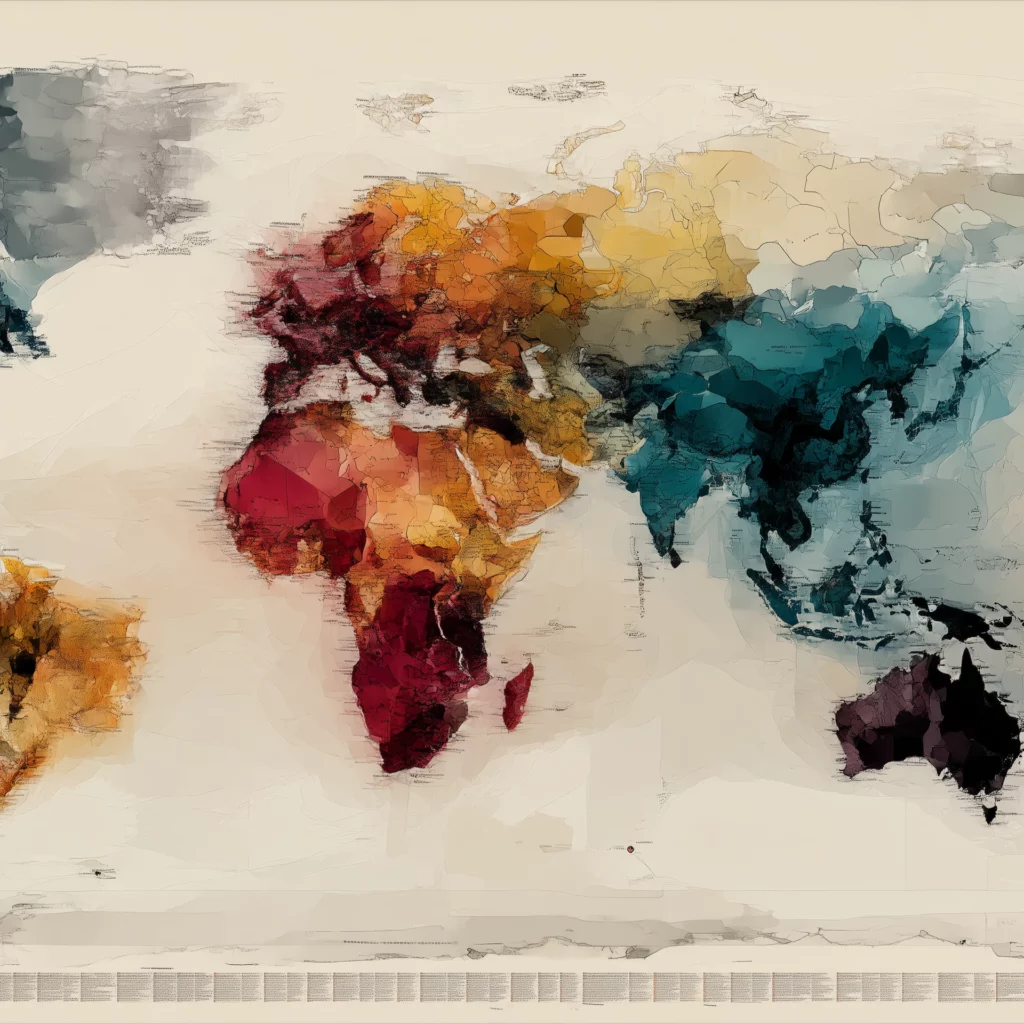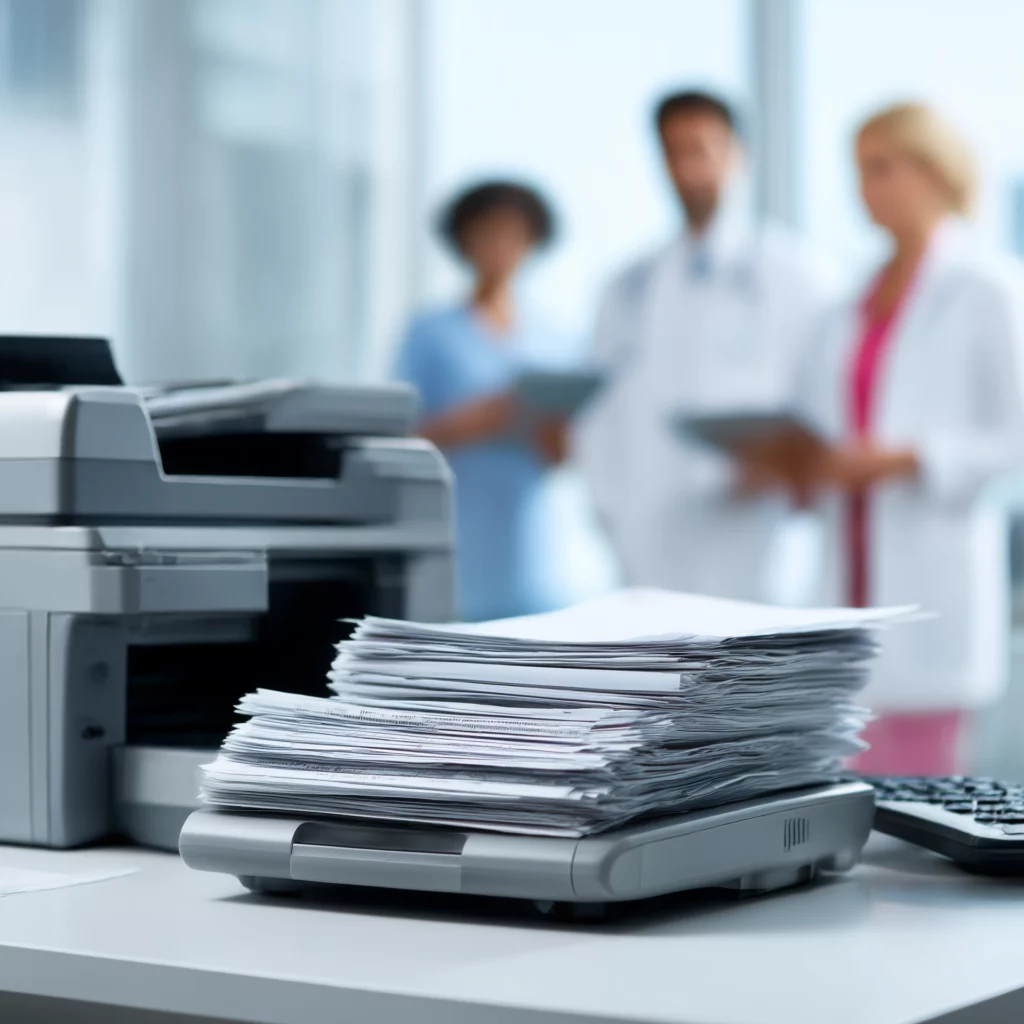NEW!
Dropbox faxing • Prices in your currency • One-click resubmit • Local times
Is Fax Still Used in 2026?
As the world has gone digital, many people wonder why fax machines are still used and if they are still relevant. Despite the ubiquity of internet access and communication technologies like email and smartphones, faxing continues to hold its ground for various reasons, including institutional habit and inertia. Here, we explore the reasons behind the persistence of faxing technology and its relevance in 2025.

Countries Obsessed With Fax
You probably think fax died with dial-up internet. Tell that to Japan, where government offices process millions of documents by fax daily, or Germany, where hospitals choose fax over secure messaging apps, or South Korea, where even threats arrive by fax.

Industries That Won’t Quit Fax
You probably think every modern business has abandoned fax for email and cloud apps. The reality is far different. From emergency rooms that can’t afford system failures to law firms bound by court requirements, entire industries have quietly decided that fax isn’t broken – and doesn’t need fixing.

Fax Disasters That Cost Millions
$5 million legal bills. $500K fraud losses. 183 lost immigration requests. When fax fails, the price tag is brutal. These aren’t hypothetical scenarios or scare tactics – they’re real consequences from actual fax failures that made headlines.

The Strangest Fax Stories
While most fax stories involve contracts and medical records, the weird side of fax reveals humanity’s endless creativity. From wildlife transmitted as documents to dinner invitations that sparked international incidents, these true stories prove that even the most mundane technology can become the stage for the extraordinary.
Does anyone still fax in 2026?
Apparently, entire industries and countries do. Here’s a list of questions and answers on the technology that refuses to let go.
Do people still use fax machines?
Absolutely! Fax machines continue to be an essential tool in various sectors like healthcare, law, and government, offering benefits such as security and regulatory compliance. Their unique features, including confirmation pages and the ability to transmit handwritten characters, make them indispensable in certain situations.
Are fax machines still relevant in 2025?
Fax machines continue to be used worldwide, with countries like Japan being one of the top users due to cultural preference for paper documents. Certain industries, such as healthcare and law, heavily rely on fax machines for secure document transmission. Despite digital advances, a 2021 study found that an astounding 46% of US small businesses still used fax machines1.
How popular is the use of fax machines today?
Fax machines continue to be used worldwide, with countries like Japan being one of the top users due to cultural preference for paper documents. Certain industries, such as healthcare and law, heavily rely on fax machines for secure document transmission. Despite digital advances, a 2021 study found that an astounding 46% of US small businesses still used fax machines1.
Are fax machines becoming obsolete?
Despite the surge in technological advancements, fax machines are not entirely obsolete. They serve an important role in the secure transmission of sensitive documents, providing security that emails might not offer. They are particularly essential in regions with slower internet speeds or unreliable digital infrastructure, such as rural areas.
Why are fax machines still used in 2025?
Companies across diverse sectors, including healthcare, law, government, and even technology, continue to rely on fax machines for communication. Although they are older technology, fax machines bring a host of benefits to modern-day communication scenarios. Here are some compelling reasons to use fax machines and faxing technology:
Here are some compelling reasons to use fax machines and faxing technology
- Confirm receipts with confirmation pages: A fax confirmation page offers undeniable proof that your message reached its destination, minimizing the risk of lost communications.
- Strengthen security: Faxing protocols come equipped with robust security measures, making it a safe harbor in a world vulnerable to hacking and data breaches.
- Comply with patient privacy rules: Use faxing as a US HIPAA-compliant method for sharing Protected Health Information (PHI), a top choice among medical professionals.
- Streamline paperwork: With many offices and healthcare facilities still relying on paper, faxing offers an efficient channel for transmitting records and forms.
- Share medical records across incompatible systems: Faxing lets you send medical information without worrying about system incompatibility, making it a go-to choice in healthcare.
- Simplify compliance with regulations: Meet regulatory guidelines and government requirements effortlessly by integrating fax into your documentation processes.
- Keep the conversation going during internet outages: Use faxing as a reliable backup when the internet fails, ensuring your communications never skip a beat.
- Build solid legal paper trails: In the legal field, faxing offers an effective way to establish paper trails crucial for discovery processes.
- Transmit handwritten characters: Send handwritten Japanese, Chinese, and Korean characters without the digital hassle.
- Send physical signatures: With faxing, sending signed documents becomes a breeze, especially when a hand-signed signature is mandatory.
What are the reasons that fax machines continue to be used?
Fax machines offer high-level security, making them a preferred choice for transmitting private information. Certain regulatory requirements necessitate the use of fax machines in specific industries. Moreover, they provide quick and real-time delivery, which can be crucial in urgent situations.
Why do some industries prefer faxing over newer technologies?
The healthcare and law industries often prefer faxing due to the immediate delivery and receipt confirmation, which is important for time-sensitive documents. Faxing provides a physical paper trail, beneficial in legal situations. In addition, for some businesses, faxing can be more cost-effective and simpler than setting up secure digital systems.
In which sectors is fax technology still in use?
Faxing is heavily used in the healthcare sector for transmitting patient records and prescriptions due to patient privacy regulations. Legal firms often use fax machines to send signed documents and contracts securely. Moreover, in Germany, fax is used as a legally binding method of communication, making it crucial in business and government sectors.
What advantages does fax technology offer over digital communication?
Faxing offers several advantages over digital communication. It offers direct and immediate transmission, reducing the risk of missing important documents. Faxes are harder to ignore or lose compared to emails, which can end up in spam or junk folders. Also, fax provides a level of security difficult to achieve with digital communication, making it ideal for transmitting sensitive data.
Who are the main users of fax machines today?
In Japan, fax machines are commonly used in homes due to the preference for handwriting and paper documents. Legal professionals often use fax machines to transmit signed legal documents and contracts. Meanwhile, healthcare workers resort to fax machines for transmitting patient records and prescriptions due to privacy regulations.
Sources
- The Most Surprising Fax Machine Usage Statistics And Trends in 2023
- https://www.afax.com/why-is-faxing-still-relevant-in-2021
- https://faxauthority.com/why-is-faxing-still-used/
- https://theconversation.com/why-do-people-still-use-fax-machines-109064
- The State of Fax: A survey on current fax usage, satisfaction and issues [PDF download]